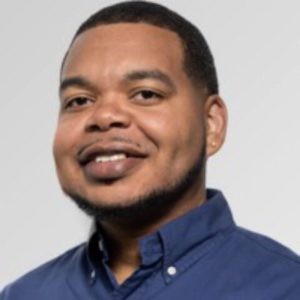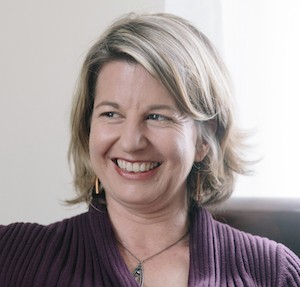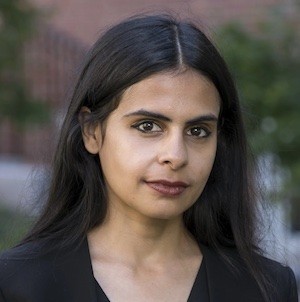Alvin Baltrop's Voyeurism: Sexual Perversity, Race, and the Historical Uses of Photography
Darius Bost, University of Illinois at Chicago
Thursday, Nov. 10, 2022 | 5:00–6:30 pm | 411 Fayerweather Hall

Since the 2019 solo exhibition The Life and Times of Alvin Baltrop at the Bronx Museum, black gay photographer Alvin Baltrop, known for his portraits of the gay sexual subcultures and abandoned warehouses at New York's West Side Piers, has received increased scholarly and popular attention. However, Baltrop has been primarily discussed as a gay artist who focused on gay subcultures. Though Baltrop's race, class, gender, and sexuality shaped his artistry, few scholars have analyzed how these identity markers shaped his life and times. This talk explores how Baltrop's identification as a black gay voyeur shaped his artistic practice and life experiences in the 1970s. Since Baltrop viewed his photography as historical documentation of a fleeting gay subculture, the talk also considers how his voyeuristic approach to photography might intervene in the practice of queer history.
Darius Bost is Associate Professor of Black Studies and Gender & Women’s Studies at the University of Illinois at Chicago, and the co-principal investigator of the Provost’s Initiative on the Racialized Body. He is also co-editor of Frontiers: A Journal of Women Studies. Bost is the author of the award-winning book, Evidence of Being: The Black Gay Cultural Renaissance and the Politics of Violence (Chicago, 2019).
Co-sponsored by the Institute for Research in African American Studies
Slouching towards Moscow: Family Values and the Romance of Russia
Bethany Moreton, Dartmouth College
Thursday, March 9, 2023 | 5:00-6:30 pm | 411 Fayerweather Hall

As part of the current upsurge of authoritarian politics and blood-and-soil ethnonationalism, U.S. Christians have rediscovered in Holy Russia an unlikely polestar. But this surge in the international “family values” movement is only the most recent iteration of a century-long relationship. From the Bolshevik Revolution through the present bromance with Putin, U.S. theocrats have used Russia as a resource for promoting sexual conformity, racial purity, and gender rigidity. Far from serving as mere “culture wars” distractions from law and economics, these theocratic ambitions are meant to secure a free market under God. This history suggests that when Christian nationalists tell us what they want, we should take them at their word.
Bethany Moreton is Professor of History at Dartmouth College and a series editor for Columbia University Press’s Studies in the History of U.S. Capitalism. Her first book, To Serve God and Wal-Mart: The Making of Christian Free Enterprise (Harvard University Press, 2009), won the Frederick Jackson Turner Prize for best first book in U.S. history and the John Hope Franklin Award for the best book in American Studies. Her most recent book is Entre Dios y el capital (Txalaparta, 2022).
The Report, or, Whatever Happened to Third World Feminist Theory?
Durba Mitra, Harvard University
Thursday, April 13, 2023 | 5:00–6:30 pm | 411 Fayerweather Hall

This talk offers a genealogy of the “status of women reports" produced across the decolonizing world. I reflect on the epistemological and ethical dilemmas of the rise of the policy report, which has functioned as the primary mode of research on gender and minoritized sexualities in the multinational knowledge industry of UN, governmental agencies, and NGOs since the 1970s. This new political economy of women and gender was built on biologically determinist notions of sexual difference based in fields like demography and population studies. Even as they claimed to represent the rights of women and LGBTQ people, these reports often obscured political questions of caste, class, and racial domination. In rethinking the history of the report, I raise two methodological questions for the history of sexuality: how does a truly global historiography of sexuality engage the endless archives of international policy reports? What forms of knowing have been lost as decades of intellectual energy and material resources have been devoted to the report?
Durba Mitra is the Richard B. Wolf Associate Professor of Women, Gender, and Sexuality at Harvard University and Acting Faculty Director of the Schlesinger Library on the History of Women in America. Her book, Indian Sex Life: Sexuality and the Colonial Origins of Modern Social Thought (Princeton, 2020), demonstrates how ideas of deviant female sexuality became foundational to modern social thought.
The Sewing Girl's Tale
John Wood Sweet, University of North Carolina at Chapel Hill
Thursday, October 6, 2022 | 5:00–6:30 PM | 406 International Affairs Building, Lehman Suite
On a moonless night in the summer of 1793 a crime in the back room of a New York brothel transformed Lanah Sawyer’s life. It was the kind of crime that even victims usually kept secret. Instead, the seventeen-year-old seamstress did what virtually no one else dared to do: she charged a gentleman with rape. The trial rocked the city and nearly cost Lanah her life. And that was just the start.
Based on extraordinary historical detective work, Lanah Sawyer’s story takes us from a chance encounter in the street into the squalor of the city’s sexual underworld, the sanctuaries of the elite, and the despair of its debtors’ prison—a world where reality was always threatened by hope and deceit. It reveals how much has changed over the past two centuries—and how much has not.
John Wood Sweet is a professor of history at the University of North Carolina at Chapel Hill and former director of UNC’s Program in Sexuality Studies. He graduated from Amherst College (summa cum laude) and earned his Ph.D. in History at Princeton University. His first book, Bodies Politic: Negotiating Race in the American North, was a finalist for the Frederick Douglass Prize. He has served as a Distinguished Lecturer for the Organization of American Historians, and his work has been supported by fellowships from the National Endowment for the Humanities, the Mellon Foundation, the National Humanities Center, the Institute for Arts and Humanities at UNC, the Gilder Lehrman Center at Yale, the McNeil Center at Penn, and the Center for Global Studies in Culture, Power, and History at Johns Hopkins. He lives in Chapel Hill with his husband, son, and daughter.
Co-sponsored by the Lehman Center for American History